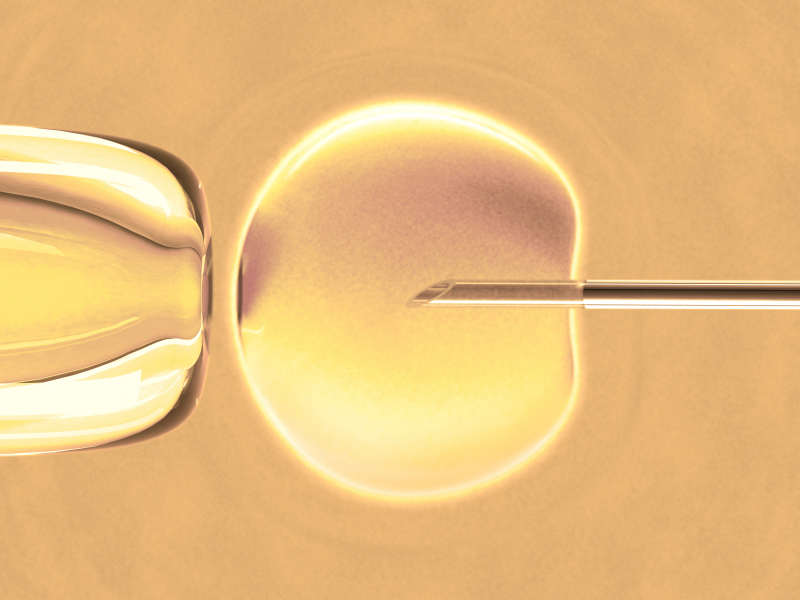For Jacques Testart, from surrogacy to transhumanism it just takes a few steps. When Amandine, the first French test-tube baby whom the biologist contributed to was born, he became aware that “What fascinated society was not so much to have allowed a sterile couple to have a child, but to conceive this future human in vitro, to see in the embryo the child to be born, and to be able to choose, sort and programme it.”
Today, scientific developments and technical procreation prowess are leading humanity towards an “augmented man”. The process goes through different stages. “When we talk about ‘gestational surrogacy’, it sounds generous,” he says. We are told a cute story, whereas it is actually a matter of renting a uterus. The problem is not whether it is a paid service or not. It is rather that homosexual male couples want to avail themselves of pregnancy – which is a fundamentally female condition. They rent it as if they were buying a prosthesis. It’s about giving themselves the gestation capacity they don’t have as males.”
The equivalent exists for women: the conservation of oocytes, which American companies often reimburse to their employees (cf. Survey: One in six women regrets freezing her eggs) seems to want to “mimic a capacity that allows a man to reproduce for the rest of his life.” But “in all cases, it is not a question of curing, but of offering people ‘enhanced’ capacities that fundamentally modify our conception of man”. For Jacques Testart, “this is transhumanism, (…) an infantile ideology that has used the extraordinary progress of technoscience over the last few decades to revive archaic myths such as immortality, health for all, the possibility of changing sex, increased intelligence and unlimited power”. This logic must lead to “asexuality”, “sex robots” or “asexual cyborgs”.
“What is new in transhumanism,” explains the biologist, “is the violence with which advertising and seduction make it possible to propagate new technologies for which we are not at all certain that there will be a benefit for humanity”. Jacques Testart detects there a form of “soft eugenics” which from the current screening of trisomy 21 could lead to the elimination of people suffering from “simple probabilities of cancer”. In fact, “what the transhumanists call ‘the augmented man’ is in reality only what the philosopher Jean-Michel Besnier calls ‘the diminished man’. A man who will find himself more and more trapped in a technological straitjacket in which he will have less and less freedom.”
Le Devoir, Christian Rioux (23/05/2018) Jacques Testart et la menace contre l’humanité

